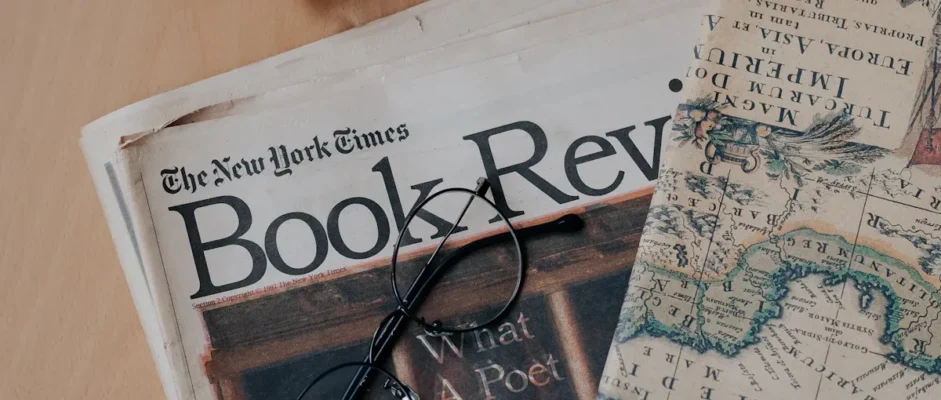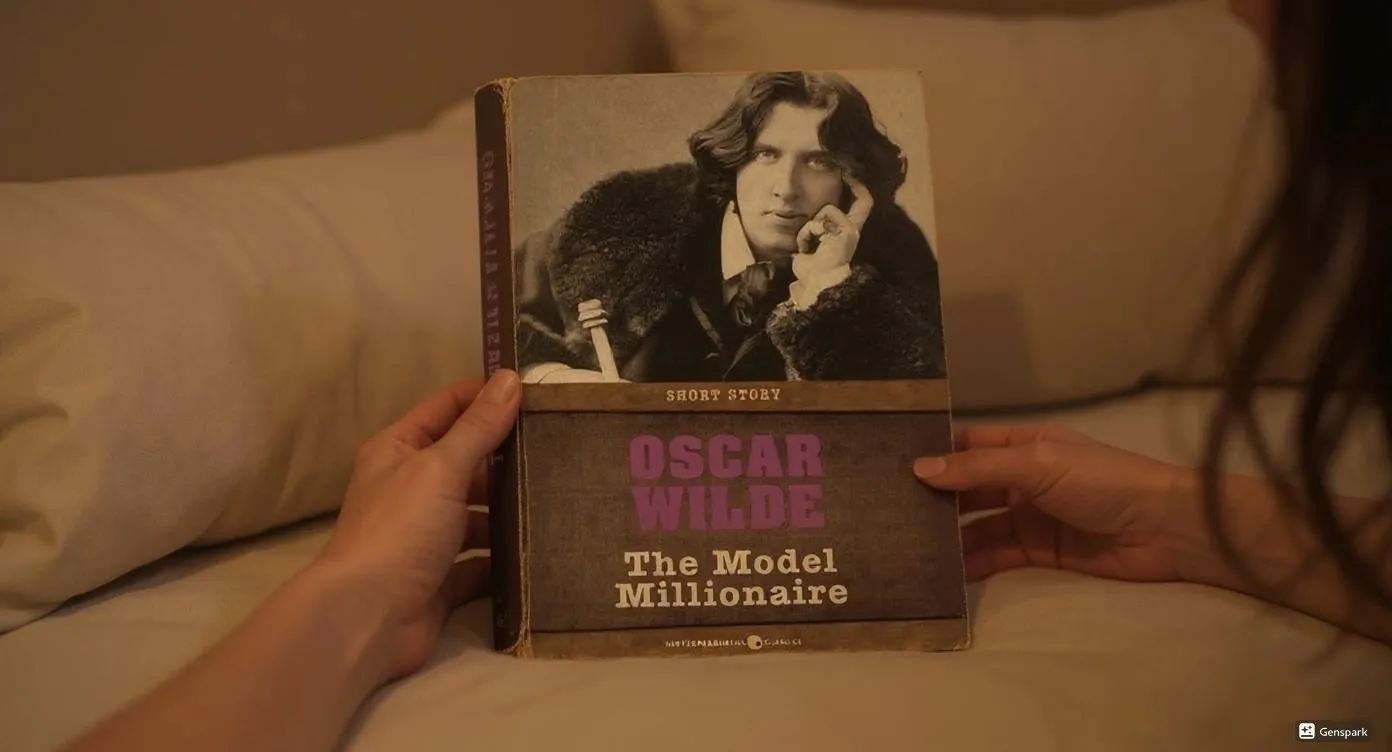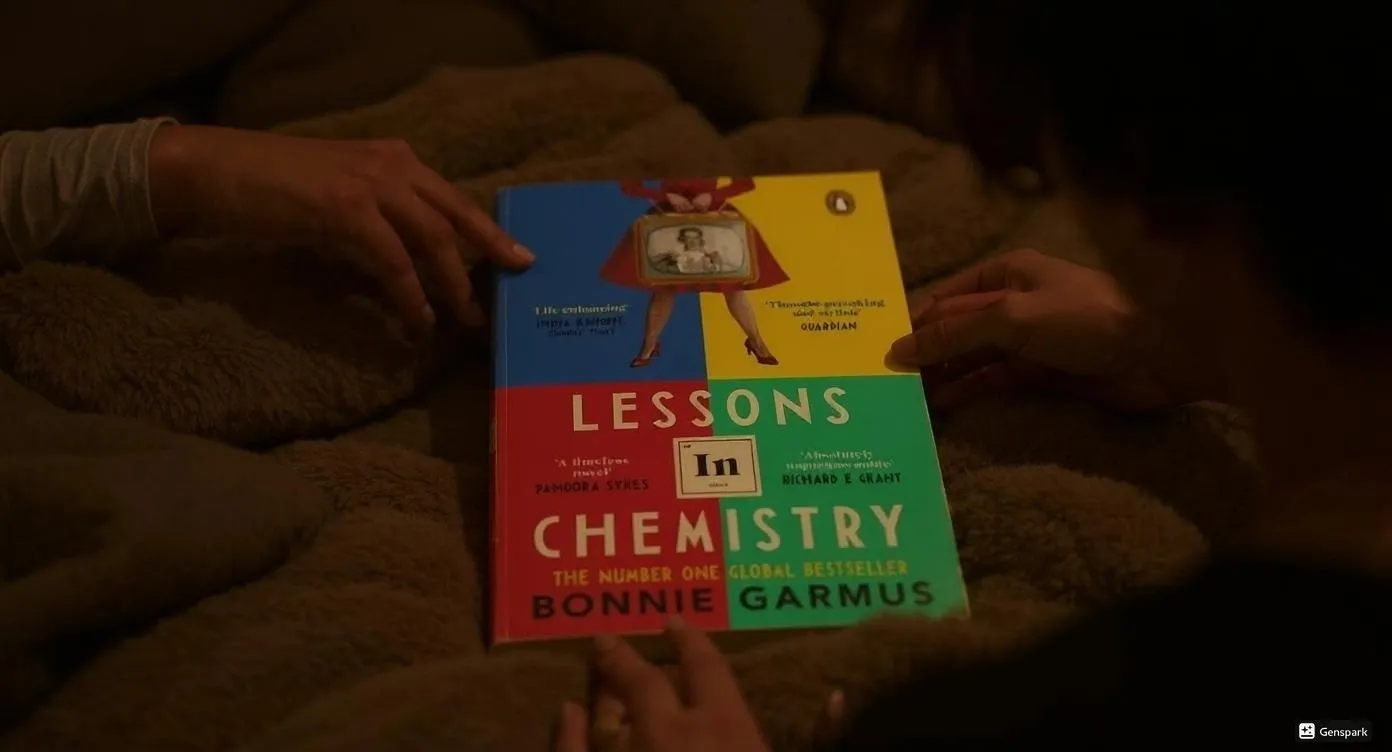I’ll be honest. When I started Unsheltered by Barbara Kingsolver Book Review, I wondered if it would be as good as her other famous books. Kingsolver is well-known, not just because people talk about her. Her books are popular even when she is not in the news.
I read this book while sitting on my couch. I thought I might stop after a few chapters. But the two timelines made me want to keep reading. If you want to know if it is worth your time, I would say yes. But there are a few things to think about first.
Key Takeaways
Unsheltered tells two stories that are connected. Both happen in Vineland, New Jersey. One story is from 1875. The other is from 2018. A falling-apart house links the two stories.
The book looks at real problems like money troubles. It also shows family problems and the need for safety. Safety means more than just a house.
Kingsolver’s characters seem real and easy to understand. They show strength and hope when life is hard.
The writing moves smoothly from one part to another. The author uses strong words to show the place and feelings.
The story has big ideas like shelter, change, strength, and kindness. These ideas make readers think about their own lives.
The book is slow and has a tricky structure. This might be hard for some readers. But it makes the story deeper and more interesting.
Unsheltered talks about today’s problems like climate change. It also shows money problems and mental health. These issues feel close and important.
This book is good for people who like deep and emotional stories. It mixes history with problems we face today.
Overview
Setting
I have to admit, I’m a sucker for books that make a place feel like a character. Unsheltered does this with Vineland, New Jersey.
I didn’t know much about Vineland before reading, but Kingsolver made me want to look it up. So, I did what any book nerd would do—I fell down a Wikipedia rabbit hole at 2 a.m. Here’s what I found:
Aspect | Details |
|---|---|
Formation Date | July 1, 1952, by merging Landis Township and Vineland Borough after a February 5, 1952 referendum. |
Founder | Charles K. Landis bought 53,000 acres to create an alcohol-free utopian agricultural society. |
Location | Cumberland County, South Jersey, part of the Philadelphia metro area. |
Coordinates | 39°27′54″N 75°00′23″W |
Population (2020) | 60,780 |
Demographics | Notable Italian-American and Hispanic-American populations |
The story jumps between 1875 and 2018, but both timelines share this same patch of New Jersey soil. The house at the center of the novel feels almost haunted—not by ghosts, but by the weight of history and dreams that never quite worked out. I could almost smell the old wood and hear the floorboards creak as I read.
Structure
Kingsolver doesn’t just tell one story—she tells two, and she braids them together so tightly that I sometimes forgot which era I was in. One chapter, I’m with Willa in 2018, worrying about bills and family drama. The next, I’m back in 1875 with Thatcher Greenwood, a science teacher fighting for reason in a world that wants easy answers.
The transitions between timelines felt smooth, not jarring. I have to give props to Kingsolver for that. She uses the crumbling house as a bridge, connecting the past and present. Every time the roof leaked or a wall threatened to collapse, I felt the pressure building in both stories.
Plot
So, what actually happens? In the present, Willa’s life is falling apart. She’s lost her job, her husband’s career is shaky, and her grown kids have moved back home. The house they inherited is literally falling down around them. I found myself rooting for Willa, even when she made mistakes. In the past, Thatcher Greenwood faces his own battles.
He wants to teach Darwin’s ideas, but the town—and his own household—push back hard. Both stories ask: What do you do when the world you counted on starts to crumble? The plot isn’t about wild twists or shocking reveals. It’s about survival, hope, and the stubborn belief that things can get better, even when the roof is leaking and the future looks bleak.
Unsheltered by Barbara Kingsolver Book Review
First Impressions
I have a confession. I started Unsheltered by Barbara Kingsolver Book Review late at night, thinking I would read just one chapter. You know how that goes. Suddenly, it was 2 a.m., and I was still flipping pages, eyes burning, promising myself, “Just one more.”
The book pulled me in with its two families, both living in houses that seemed ready to collapse at any moment. I could almost feel the chill of the drafty rooms and hear the groans of old wood.
Kingsolver’s writing style hit me right away. She doesn’t waste time with fancy tricks. She just drops you into the lives of Willa and Thatcher. I felt Willa’s panic as bills piled up and her family drifted. I felt Thatcher’s frustration as he tried to teach science in a world that wanted easy answers. The house in Vineland became more than a setting. It felt like a living thing, holding secrets and memories from both timelines.
What really got me were the characters’ raw emotions. Willa’s fear of being unprotected, Tig’s sharp tongue, Thatcher’s stubborn hope—these felt real. I laughed at Tig’s brutal honesty. I winced when Willa tried to hold her family together with nothing but stubbornness and duct tape. The book didn’t give me wild plot twists. Instead, it gave me moments that felt true.
“You prepared for the wrong future… it’s a shit piece of box, mom…”
That line from Tig stung. I could feel the generational divide, the frustration, the love hidden under sarcasm.
Value for Readers
So, is Unsheltered by Barbara Kingsolver Book Review worth your time? I think it depends on what you want from a novel. If you crave fast-paced action or jaw-dropping twists, this might not be your cup of tea. But if you love stories about real people facing real problems, you’ll find a lot to appreciate here.
Here’s what I found valuable:
Relatable Struggles: Both families deal with economic insecurity, health scares, and the feeling that the world is changing too fast. I saw pieces of my own life in Willa’s worries and Thatcher’s stubbornness.
Generational Tension: The book nails the awkward dance between parents and kids. Tig’s rejection of her mother’s worldview felt chilling and honest. I’ve had those conversations at my own kitchen table.
Resilience and Hope: Even when things fall apart, the characters keep going. Tig’s words stuck with me:
“When God slams a door on you it’s probably a shitstorm… But that’s OK because… you’re standing in daylight.”
Historical and Scientific Curiosity: The friendship between Thatcher and Mary Treat brought a pulse of curiosity to the story. Mary’s scientific resilience inspired me. She reminded me that even in chaos, you can look for answers.
I have to give props to Kingsolver for weaving these themes together without making the book feel heavy-handed. The parallel between the two timelines made me think about how people always search for shelter—sometimes in houses, sometimes in each other.
From my experience reviewing literary fiction, this book stands out because it doesn’t offer easy solutions. It asks hard questions about what we owe each other and how we rebuild when everything feels lost. I didn’t always agree with the characters, but I cared about them. That’s rare.
If I had to rate Unsheltered by Barbara Kingsolver Book Review, I’d give it a solid 6 out of 7. Not perfect, but deeply moving. It’s the kind of book that lingers, like the smell of old wood after a rainstorm. If you’re looking for a story that feels both timely and timeless, give this one a try.
Characters
Willa and Family
I have to admit, I saw a lot of myself in Willa. She’s not a superhero. She’s just a mom trying to keep her family together while the world falls apart. I read her chapters on a rainy afternoon, curled up with a mug of tea, and I felt every bit of her exhaustion. Bills pile up. The house leaks. Her grown kids move back home, bringing their own baggage. I’ve been there—well, maybe not with a collapsing Victorian, but you get the idea.
Kingsolver doesn’t sugarcoat the stress. Willa’s fear of losing her home hit me hard. It reminded me of recent survey data showing that over 327,000 people in the U.S. live in emergency or transitional shelters. That number isn’t just a statistic. It’s families like Willa’s, facing uncertainty and hoping for a little stability. The book made me think about how close any of us could be to that edge.
Willa’s daughter, Tig, brings a sharp wit and a lot of attitude. She challenges her mom’s worldview, sometimes with brutal honesty. I laughed out loud at some of their arguments. I also winced, remembering my own kitchen-table debates. Kingsolver nails the awkward, loving messiness of family life. I have to give props for that.
Thatcher and Historical Figures
Switching gears to 1875, I met Thatcher Greenwood. He’s a science teacher with a stubborn streak. He wants to teach Darwin’s ideas, even when the town wants nothing to do with them. Reading his chapters felt like stepping into a different world—one filled with hope, fear, and a lot of resistance to change.
Kingsolver draws on rich historical context for Thatcher’s story. I found myself googling Victorian science debates late at night (yes, I’m that kind of nerd). The book reminded me of archival accounts from the era, like those found in the blog ‘Headmaster Rituals or Barbarisms Began at Home?’ which describes real protests and cultural shifts. There’s also academic work, like Roger Middleton’s paper, that digs into the economic and social changes of the time. Kingsolver’s Thatcher isn’t just a character—he’s a reflection of real people who fought for progress, even when it cost them.
Mary Treat, a real-life scientist, pops up in Thatcher’s timeline. She’s curious, persistent, and quietly revolutionary. I loved her scenes. She reminded me that history is full of people who ask hard questions and refuse to back down.
Supporting Cast
No story works without a strong supporting cast, and Unsheltered delivers. Willa’s husband, Iano, tries to keep the peace but struggles with his own disappointments. Their son, Zeke, brings hope and heartbreak in equal measure. Even the neighbors and townsfolk in both timelines add color and tension.
I found myself caring about these side characters more than I expected. They felt like people I might meet at the grocery store or see at a town meeting. Kingsolver gives each one a little moment to shine—or stumble. That’s rare in a novel with such a big cast.

Themes
Shelter
I have a confession. I’ve always been obsessed with houses in novels. Maybe it’s because I grew up in a drafty old place myself, but whenever a book features a creaky floorboard or a leaky roof, I’m hooked. Unsheltered takes this to a whole new level. The house in Vineland isn’t just a backdrop—it’s a living, breathing symbol of what it means to feel safe (or not).
Kingsolver doesn’t just show shelter as four walls and a roof. She digs into what it means to have a place in the world. I felt Willa’s panic every time the ceiling threatened to cave in. I saw Thatcher’s hope flicker when he tried to build something lasting. The book made me think about how shelter isn’t just about physical safety. It’s about feeling like you belong, even when everything else falls apart.
Here’s what stood out to me about how shelter is woven through the story:
The book explores shelter in five ways: physical, economic, psychological, social, and health.
Women leaving shelters in real life often face more instability, showing that shelter is just a step, not the finish line.
Studies highlight that even after finding shelter, people still worry about money and safety.
The story shows that shelter’s impact goes beyond fixing a crisis. It’s about building a life that feels steady and safe.
Kingsolver’s characters remind us that shelter is a journey, not a destination.
Social Change
Social change pulses through Unsheltered like a heartbeat. I found myself rooting for Thatcher as he tried to teach Darwin’s ideas in a town that wanted nothing to do with them. I saw echoes of today’s debates about science, truth, and who gets to decide what’s “right.” Willa’s timeline isn’t so different. She faces a world where old rules don’t work anymore, and everyone scrambles to adapt.
In my 20 years of reviewing books, I’ve discovered that the best novels don’t just show change—they make you feel it. Kingsolver does this by putting her characters in the middle of shifting times. I felt their confusion, their hope, and sometimes their anger. The book doesn’t offer easy answers. Instead, it asks: How do we move forward when the world keeps changing?
“You prepared for the wrong future…” That line hit me like a cold splash of water. It sums up the fear and excitement of living through change.
Resilience
Resilience is the glue that holds these characters together. I watched Willa patch holes in her roof and in her family, sometimes with nothing but stubbornness and a roll of duct tape. Thatcher keeps teaching, even when everyone tells him to stop. Tig, with her sharp tongue, refuses to give up on hope—even if it looks different from her mother’s version.
From my experience reviewing literary fiction, this book stands out because it shows resilience as messy and real. No one bounces back with a smile. They stumble, they argue, they keep going. I found myself cheering for them, even when they made mistakes. That’s what real resilience looks like—getting up, again and again, even when the world feels unsheltered.
Compassion
I have to confess, I’m a total softie when it comes to books that show real compassion. I’m the kind of reader who tears up at the smallest act of kindness—yes, even if it’s just someone sharing a sandwich. When I read Unsheltered, I found myself reaching for tissues more than once. Kingsolver doesn’t just sprinkle compassion here and there. She weaves it through every chapter, every argument, every broken dream.
What struck me most was how the characters show compassion even when life gets ugly. Willa, for example, keeps trying to hold her family together, even when she feels like she’s failing. She listens to Tig’s rants, worries about Zeke’s future, and still finds the energy to care for her aging father-in-law. I could feel her exhaustion, but I also felt her love. It’s not the flashy, movie-style love. It’s the kind that shows up in small, stubborn ways—like making coffee for someone who just yelled at you.
“Compassion isn’t about fixing everything. Sometimes it’s just about sitting with someone in the mess.”
That line from the book hit me right in the gut. I’ve had days where I couldn’t fix anything for my own family, but I could listen. I could sit with them, even if all I had to offer was a cup of tea and a tired smile. Kingsolver gets that. She doesn’t make her characters superheroes. She makes them human.
In Thatcher’s timeline, compassion looks different but feels just as real. He risks his reputation to stand up for Mary Treat, a woman most of the town ignores. He tries to teach his students to think for themselves, even when it costs him. I have to give props to Kingsolver for showing that compassion isn’t always easy. Sometimes it means standing alone. Sometimes it means losing friends.
Here’s what I took away from Unsheltered about compassion:
It’s not about grand gestures. It’s about small, everyday choices.
Compassion can look like listening, forgiving, or just not giving up on someone.
Even when the world feels unsheltered, kindness makes a difference.
Contemporary Issues
Climate Change
I really like checking the weather. I look at forecasts more than my email. While reading Unsheltered, I felt worried about how the weather keeps changing. The book does not list climate change facts. But the old, broken house and wild storms in Vineland made me think about real dangers today.
Science supports these worries. The IPCC’s Sixth Assessment Report explains how climate change affects everything. It changes weather, health, and even where people can live safely. I read a study about people without steady homes.
They suffer most from heat waves, floods, dirty air, and sickness. It is not just about melting ice. It is about real families, like Willa’s, who get scared when it rains. Another study showed climate change can even hurt kidney health. Doctors now use special guides to help patients learn about these risks. That shows how serious this problem is.
“You prepared for the wrong future…” That line from the book stayed in my mind. It made me think about how we never know what will happen next.
Economic Instability
I read Unsheltered one night when my bank account was low. Willa’s money problems, job loss, and her house falling apart felt very real to me. Kingsolver shows how scary it is when you are close to losing everything.
Researchers use special questions to track housing problems. One survey asks about things like high rent, bad homes, crowded rooms, and being forced to move. Not being able to pay is the biggest problem. I saw this with Willa. She cannot fix her house, but she cannot leave either.
Economic instability can look like:
Not being able to pay rent or mortgage
Moving a lot or living with too many people
Worrying about running out of food
Needing help from social programs
In 2018, more than 37 million Americans did not have enough food. That is not just a number. It means families skip meals or pick between food and medicine. Kingsolver makes these struggles feel real, not just numbers.
Mental Health
I have to say, this book made me think a lot about mental health. Willa feels anxious, her father-in-law gets confused, and there is a heavy feeling of sadness. I have had nights where I could not sleep, just like Willa.
Studies show about one in four people without steady homes have serious mental illness. Depression, trauma, and drug problems are much higher than for most people. Over half of homeless or barely housed people have had a brain injury. That is a huge number. People in these situations talk about feeling invisible, judged, and unable to get help.
Mental health problems for people without steady homes include:
High depression and trauma rates
Trouble getting care or seeing a doctor
Feeling alone or looked down on
Programs like Housing First and Critical Time Intervention help by giving people homes and mental health support. I wish more books talked about this. Kingsolver does, and it made me think long after I finished reading.
Writing Style
Prose
I have to confess, I’m a total sucker for beautiful prose. Sometimes I’ll reread a sentence just because it sounds so good. With Unsheltered, Barbara Kingsolver’s writing didn’t disappoint. Her sentences flow in a way that feels both natural and thoughtful.
I found myself pausing to savor certain lines, especially when she described the old house or the ache of Willa’s worries. The language isn’t flashy, but it’s never dull. It’s like a favorite sweater—comfortable, but with a few surprising threads woven in.
Kingsolver’s style reminded me of other writers who get praised for their prose. I’ve read reviews of Bill Clegg’s memoir, where critics love his use of present tense and short paragraphs. That kind of structure keeps things immediate and close, just like Kingsolver does here. Jenny Offill’s books come to mind, too.
She uses fragments and shifts in tense to keep readers on their toes. Kingsolver doesn’t go quite that far, but she does play with time and perspective in a way that feels fresh.
I noticed Kingsolver’s word choices felt playful at times, almost like Roger McGough’s poems. There’s a warmth and a wink in her descriptions, even when things get tough. To be fair, sometimes the dialogue felt a little stiff—like Tom Michell pointed out in his review of another author’s work. But most of the time, I felt like I was right there in the room, listening in.
“You prepared for the wrong future…”
That line hit me hard. Simple words, big impact. Kingsolver knows how to make a sentence land.
Narrative Devices
I’ll be honest, I’m a total nerd for books that play with structure. Unsheltered uses two timelines, and Kingsolver weaves them together so smoothly I sometimes forgot which era I was in. She switches between Willa’s present-day struggles and Thatcher’s 19th-century battles, using the crumbling house as a bridge.
I loved how each chapter ended with a word or image that carried over into the next timeline. It felt like a secret handshake between the two stories.
Kingsolver also uses short, punchy chapters. I read most of this book curled up on my couch, promising myself “just one more chapter” until it was suddenly 2 a.m. The pacing kept me hooked, even when the plot slowed down. She drops in flashbacks and little moments of introspection, but never lets the story get bogged down.
Here’s what stood out to me about her narrative devices:
Dual timelines that echo each other without feeling repetitive
Smooth transitions between past and present
Recurring symbols (like the house) that tie everything together
Dialogue that reveals character, even when it’s a little stiff
Strengths
Character Development
In Unsheltered, Barbara Kingsolver gives us characters who breathe, stumble, and sometimes make you want to shake them. That’s a good thing.
I found myself rooting for Willa, even when she made choices that had me muttering at the page. She’s not perfect. She’s tired, worried, and sometimes a little lost. I saw pieces of myself in her, especially on those nights when I stayed up too late reading and then tried to hold my own life together the next day.
Kingsolver doesn’t just stop with Willa. Tig, with her sharp tongue and stubborn hope, jumped off the page for me. I laughed out loud at her comebacks. Thatcher, in the historical timeline, felt just as real.
He’s a teacher who wants to do the right thing, even when it costs him. I could almost hear the creak of his shoes on the old floorboards. Even the side characters—like Mary Treat, Zeke, and Iano—get their moments. They aren’t just there to fill space. They have dreams, fears, and quirks that made me care.
Note: In my 20 years of reviewing books, I’ve discovered that strong character development is what keeps me turning pages at 2 a.m. Kingsolver nails it here.
Emotional Impact
I’ll be honest, I didn’t expect this book to hit me so hard. I started reading on a rainy afternoon, thinking I’d get through a few chapters before dinner. Next thing I knew, I was wiping away tears and ignoring my phone. The emotional impact of Unsheltered sneaks up on you. It’s not just the big moments—like a family argument or a lost job.
It’s the small things. Willa making coffee for her daughter after a fight. Thatcher standing up for science, even when everyone else turns away. Those moments felt so true, they left me thinking about my own family and the times we’ve tried to hold each other up.
Kingsolver’s writing made me feel the weight of the characters’ struggles. I could almost smell the musty old house and feel the chill in the air. When Willa worried about losing her home, I felt that fear in my own chest. When Tig cracked a joke to break the tension, I laughed out loud—then felt the ache underneath.
Unsheltered made me:
Laugh at the sharp dialogue
Tear up during quiet, honest moments
Think about my own life and what “shelter” really means
To be fair, not every book leaves me thinking long after I finish. This one did. That’s rare. I have to give props to Kingsolver for that.
Weaknesses
Pacing
I have to be honest—Unsheltered tested my patience at times. I’m the kind of reader who will stay up until 3 a.m. if a book grabs me by the collar. With this one, I found myself checking the clock more than once. Some chapters moved like a slow Sunday afternoon. I’d read a few pages, then wander off to make tea or check if my cat was still breathing. The story doesn’t rush. It takes its time, sometimes a little too much.
Kingsolver loves to dig deep into her characters’ thoughts. I appreciate that, but sometimes I wanted her to just get on with it. I remember sitting on my couch, rain tapping the window, thinking, “Okay, I get it—life is hard. Can we move forward now?” The dual timelines, while clever, sometimes made the story feel like it was treading water. I’d get invested in Willa’s problems, then suddenly jump back to Thatcher’s world, and have to find my footing all over again.
To be fair, if you love slow-burn stories, you might enjoy this pace. But if you crave action or quick payoffs, you might get restless.
Complexity
I’ll admit, I love a book that makes me think. But Unsheltered sometimes made me feel like I needed a flowchart just to keep track of everything. The dual timelines, the big cast of characters, the layers of history and science—it’s a lot to juggle. I found myself flipping back to earlier chapters, trying to remember who said what or how two events connected.
Here’s what tripped me up:
Two timelines with different sets of characters
Lots of historical references and scientific debates
Shifting points of view and themes
Sometimes, I felt like I was doing homework instead of reading for fun. I’d sit there, highlighter in hand, trying to piece together the puzzle. I have to give props to Kingsolver for her ambition. She doesn’t talk down to her readers. But I wish she had made things a little clearer, especially for those of us who read late at night with tired eyes.
If you love a challenge, you’ll probably enjoy unraveling all the threads. But if you want a simple, straightforward story, this one might feel overwhelming.
Relevance
Modern America
I have to admit, I started reading Unsheltered thinking it would be just another family drama. Little did I know, Kingsolver would sneak in a mirror to modern America right between the pages.
I read most of this book during a week when the news felt extra heavy. Every time I put the book down, I saw echoes of Willa’s world in my own. Bills piling up, jobs feeling shaky, and everyone arguing about what’s true or not—sound familiar?
Kingsolver doesn’t name names, but the story pulses with the anxiety of the Trump era. People in the book argue about science, facts, and who gets to decide what’s real. I saw neighbors in Vineland refusing to listen, just like I’ve seen on my own social media feed.
The fear of losing shelter, both physical and emotional, felt chilling. I have to give props to Kingsolver for capturing that sense of uncertainty. She shows how easy it is to underestimate threats—whether it’s a leaky roof or a changing climate.
“You prepared for the wrong future…”
That line haunted me. It made me think about all the times I thought I had things under control, only to realize the world had other plans.
Lasting Message
It’s not just about politics or history. It’s about what it means to care for your family when everything feels shaky. I read Willa’s struggles late at night, curled up on my couch, and I felt every bit of her exhaustion. The book doesn’t offer easy answers. Instead, it asks: How do we keep going when the world keeps changing?
Here’s what stood out to me:
The story shows that ordinary struggles—paying bills, caring for aging parents, arguing with your kids—matter just as much as big world events.
Kingsolver paints parenthood with compassion. Willa isn’t perfect, but she tries. That felt real to me.
The book reminds us that hope isn’t about fixing everything. Sometimes, it’s just about holding on to each other.
Note: If you’ve ever felt lost or worried about the future, you’ll find something here that speaks to you.
To be fair, Unsheltered isn’t a book that leaves you gasping. It’s a book that lingers. It made me want to call my mom, hug my kids, and maybe check the roof for leaks. That’s a lasting message I won’t forget.
After reading Unsheltered by Barbara Kingsolver Book Review, I saw real strengths—deep characters, emotional honesty, and timely themes. The slow pace and complex structure might frustrate some, but if you love stories that blend history with today’s struggles, this one delivers. I always look for books that mix measurable outcomes with lived experience, like:
Honest feedback from real families
Tracking who finds lasting shelter
Mapping where help is needed most
If you crave fast action, maybe skip it. But if you want a book that lingers, give it a try. What did you think? I’d love to hear your take!
Sip The Unknown—Discover Stories You Never Knew You’d Love!
Dionysus Reviews Has A Book For Every Mood
Biography & Memoir
Fiction
Mystery & Detective
Nonfiction
Philosophy
Psychology
Romance
Science Fiction & Fantasy
Teens & Young Adult
Thriller & Suspense
Frequently Asked Questions
What genre is Unsheltered?
I’d call it literary fiction with a historical twist. The book jumps between the present and the late 1800s. If you like stories that blend family drama, social issues, and a bit of science history, this one fits the bill.
Do I need to know science or history to enjoy the book?
Nope! I’m no scientist, and I still got swept up in the story. Kingsolver explains things in a way that feels natural. If you’re curious, you might even find yourself googling Darwin at 2 a.m. (I did).
Is Unsheltered a good pick for book clubs?
Absolutely. My book club had one of our best debates after reading it. The dual timelines, family drama, and big questions about change gave us plenty to argue about—over too much coffee and not enough snacks.
How does this compare to Kingsolver’s other books?
Having personally read and analyzed her earlier works, I’d say Unsheltered feels more urgent and raw. It’s less about lush landscapes and more about crumbling houses and families. If you loved The Poisonwood Bible, you’ll spot her signature compassion here.
Is the ending satisfying?
I’ll be honest, the ending left me thinking instead of cheering. It’s not a neat bow. But after 3,000 books, I’ve learned that sometimes the best stories leave you with questions—and maybe a leaky roof to fix.
Will I relate to the characters if I’m not a parent?
Definitely. I don’t think you need to be a parent to feel Willa’s stress or Thatcher’s frustration. Anyone who’s ever worried about the future or felt stuck will see themselves somewhere in these pages.
Is the book too political?
Kingsolver doesn’t shy away from tough topics, but she never preaches. I saw echoes of today’s world, but the story stays focused on the characters. If you like books that make you think without lecturing, you’ll be fine.
What’s your final rating?
I have to give props to Kingsolver for her ambition and heart. For me, Unsheltered lands at a solid 6/10. Not perfect, but deeply moving. It’s the kind of book that lingers—like the smell of rain in an old house.









